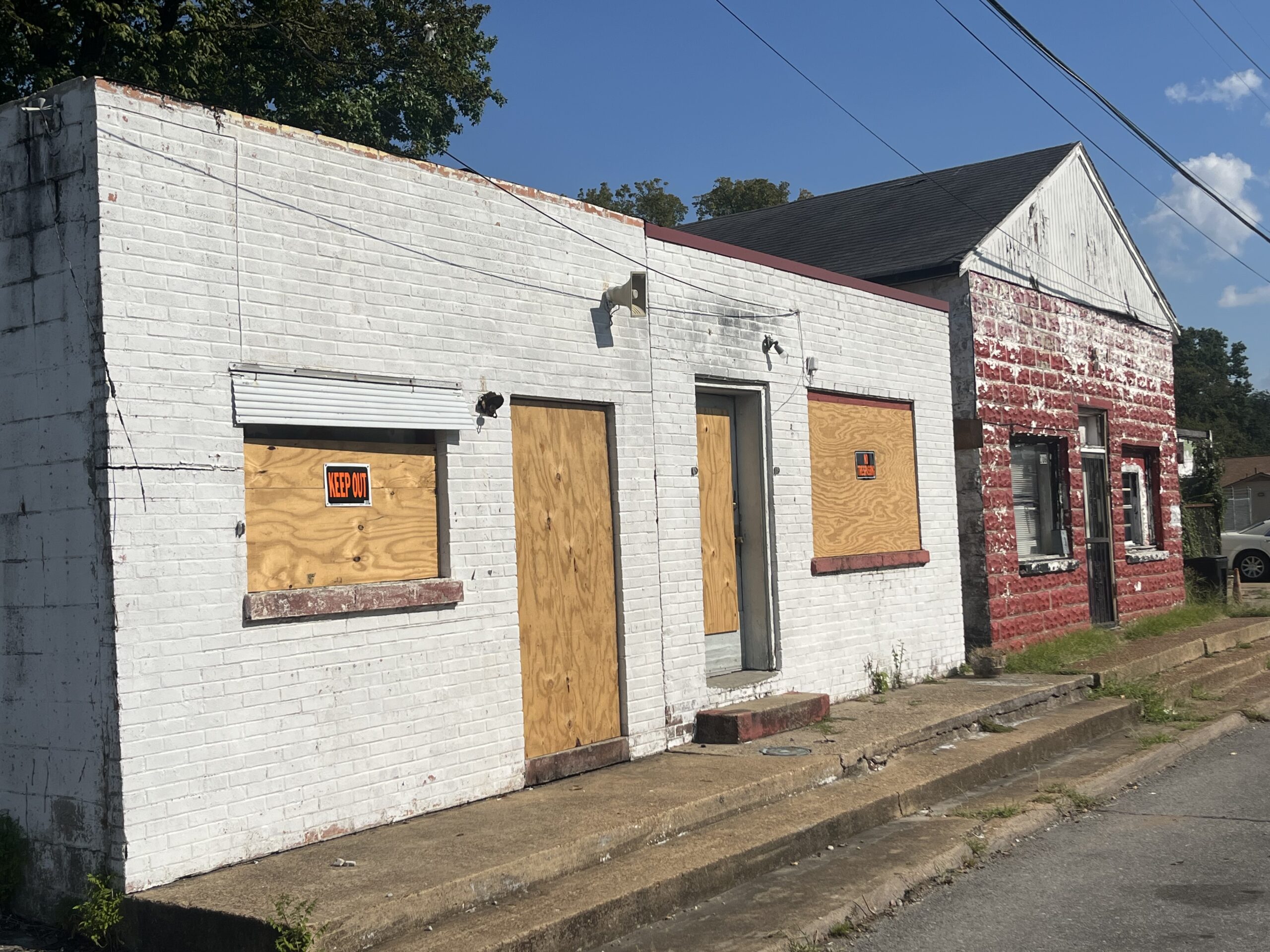













While Memphis’s Beale Street is far better known, and has been restored as a tourist attraction, South Eighth Street across the river in West Memphis, Arkansas was if anything a wilder street of music, gambling and food, where people often went to party when the police had shut down the Memphis clubs. The people that frequented the street (and a smaller similar district on South 16th Street) included Howlin’ Wolf and Little Junior Parker; Johnnie Taylor was from nearby Crawfordsville, and almost surely visited Eighth Street at some point in his life. While the authorities in Crittenden County, Arkansas occasionally raided the clubs, and even the Federal government once raided gambling establishments such as the Busy Bee Hotel, West Memphis had a wide-open reputation.
West Memphis’s wildness perhaps stemmed from its newness. Before 1926, there was no such place as West Memphis, although there had once been a village of the same name directly across from Memphis on the banks of the river in the 1890s. A small railroad town called Hulbert existed at the place where what is now Avalon Street crossed the railroad between Memphis and Little Rock. But a man named Zack Bragg moved from Utica, Mississippi to Crittenden County, Arkansas, buying up timber land and forming the Bragg Lumber Company in 1914. The community that grew up around the lumber mill was named Bragg, but by 1926 it had become a big enough city that the decision was made to incorporate. Bragg encouraged the name change from Bragg to West Memphis because the city of Memphis had a good reputation for hardwood and he believed that incorporating the name of Memphis into the location of his business would increase the marketability of his company’s timber, which it did. So rapidly did the city grew that it was nicknamed the Wonder City. Ironically, Zack Bragg, who became the first mayor of West Memphis, was a life-long opponent of night clubs.
But West Memphis became a repository for all kinds of things that Memphis did not allow, including auto racing, dog racing, road houses, night clubs and gambling. White Memphis kids would go to the Plantation Room to hear great Black bands like Al Jackson Sr.’s orchestra or Phineas Newbern’s Sr.’s band, and they would go to the Memphis-Arkansas Speedway at Lehi to see early NASCAR races on a dirt track, until it closed after a wreck that injured spectators in 1957. Kids would also party on sandbars in the Mississippi River, but teenaged drinking and the murder of a Memphis waitress under the Harahan Bridge caused the authorities on the Arkansas side to crack down on partying.
Eighth Street and Sixteenth Street retained something of their popularity through the mid-1960s, but times were changing. There were also small secondary blues scenes in nearby towns, including Turrell, Earle, Crawfordsville, Edmondson, Hughes and Blackfish Lake; the last community had a notorious private club where gambling was permitted until it burned at some point in the 1950s. Like many parts of the South, African-Americans began leaving eastern Arkansas for the north and west. Howlin’ Wolf had left when he signed with Chess Records, and Little Junior Parker had moved to the West Coast. Both Memphis and West Memphis were racially tense during the late 1960s and early 1970s, and by the 1980s, most of the various clubs on Eighth Street had closed. They were eventually acquired by a local homeless mission which uses some of the old clubs for storage. One remains as the headquarters of a motorcycle club. It is to be hoped that leadership in West Memphis will look at the potential of turning Eighth Street back into a district of clubs and restaurants as a tourist draw to the city. Memphis is already a destination, and along with the new Sultana Museum being built in Marion, the Eighth Street redevelopment would attract visitors to the west side of the river. Blues is not completely gone from West Memphis, as the Big River Bar and Grill on West Broadway still has live bands on occasions, especially on Sundays.

